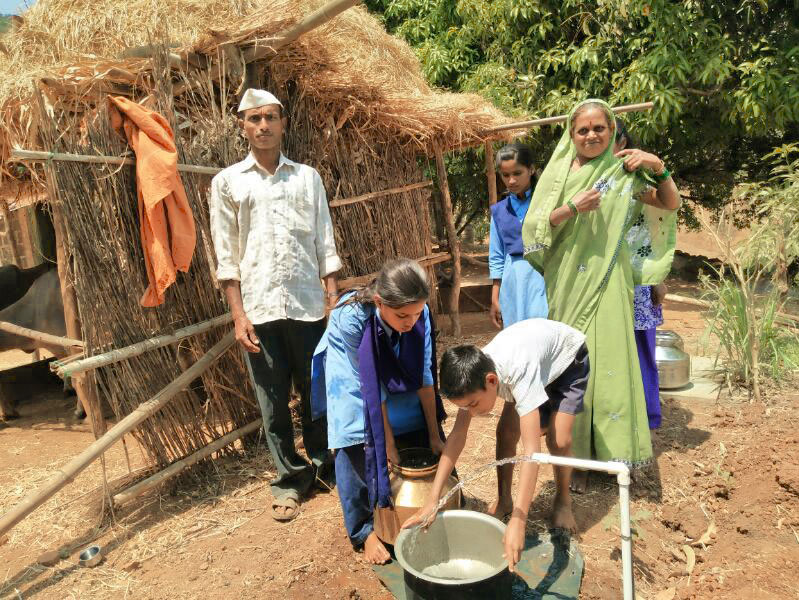It is like a dream from which I don’t wish to wake up. No words to describe my happiness and gratitude as I see water at my doorstep for the first time in 50 years since I came to this village as a daughter-in-law,” says Tarabhai Gholap.

“Earlier, we would walk up and down the hills, gasping for breath as we balanced the pots on our heads and waists. The whole body ached, leaving us so tired and drained that we found it difficult to attend to other household chores,” says Sitabhai Wadker. But now she is happy to fill pots from the tap close to her house. And, her daughter can spend more time and energy on her studies.
These women are residents of Oholi, a 400-year old village on the Sahyadri ranges, near Pune. The village is revered for its temple where a teenaged Chatrapati Shivaji vowed to establish a separate State for the Marathas.

Life was tough for the 600 villagers in its 121 households, as there was no piped water supply. Girls and women had to trudge long distances to bring water for daily use from a water source at the base of the hill. As a result, farming and livestock suffered, children couldn’t attend school and women often fell sick. “The Domino effect of water shortage was so much that the village could not sustain soil, livestock or crops, which meant no milk or milk products for children, resulting in poor nutrition,” says Swati Herkel, past president of RC Wai, D 3132.
A visit by the club members, led by Swati, changed the scenario entirely. Pooling their resources, they designed a water project and applied for a global grant. The club approached Dr Meena Patel, past governor and District Foundation Chair of D 6650, Ohio, who assessed the community’s needs and gave the nod to partner this project in just eight hours.
The total cost was around $33,000; the local community pitched in with labour. The project was completed in three phases.

A well was dug near the water source at the foothills of the mountain in the first phase. In the second phase, pipelines were laid to take up the water from the well to a reservoir constructed on the hilltop. In the final phase, pipelines were laid across the village to bring water to the doorsteps of the villagers. The entire project was completed in five months. Overjoyed with this invaluable gift, the villagers presented Swati and Meena, who had come down from the US specially for the occasion, with hand-woven quilts symbolically depicting the Rising Sun.
Availability of water has served as a great catalyst for the villagers as the State government has sanctioned construction of 60 pucca houses here.
“Now that the people have water, we are giving them seeds and saplings of medicinal and fruit-bearing plants so that they can put their land to income-generating use,” says Swati. Volunteers from the club’s Rotaract Club will assist them in the cultivation.
The Rotarians have also provided bicycles for children to commute to school which is at Village Titegarh, four km away. They have also distributed educational tablets to students of the village’s primary school, which has “classes upto Grade VI, but just two teachers. The tabs will take care of the lessons for the rest of the students when the teachers are otherwise engaged,” she says.
Water purifiers and toys for the anganwadi and gas stoves to the households to deter them from destroying the forests are other activities undertaken by RC Wai under this integrated village development programme.





